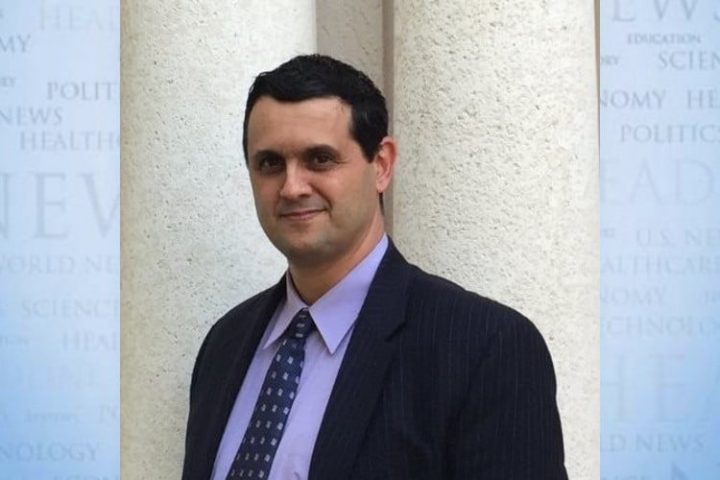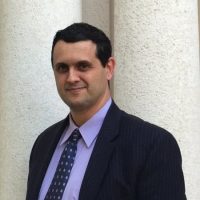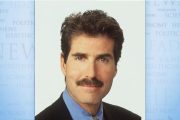
The First Amendment is enshrined in our Constitution and specifically states, “Congress shall make no law respecting an establishment of religion, or prohibiting the free exercise thereof; or abridging the freedom of speech, or of the press; or the right of the people peaceably to assemble, and to petition the government for a redress of grievances.” While the free exchange of ideas is one of the hallmarks of a free and open society, recent decisions and conduct by various left-wing organizations, their boards and leaders, and/or cities across the nation have served to erode this right by “policing” what people may or may not say.
During a recent Politico Europe event, Facebook board member Helle Thorning Schmidt discussed how the media giant’s board might approach moderating content and how it would decide what types of posts would be deemed “misinformation.” According to Schmidt:
How do you moderate content and how do you find that balance between human rights and free speech, which is a human right, but also other human rights? Because free speech is not an absolute human right it has to be both balanced with all the human rights and that’s what the oversight is there to do.
While the right to free speech is not an “absolute right,” meaning that it is guided by restrictions, any such restrictions of this right must be lawful. For example, in the past, the U.S. Supreme Court has placed restrictions on certain types of speech, including, but not limited to, obscene speech, fighting words, and words that present a clear and present danger of inciting violence. The high court has also permitted restrictions on the time, place, or manner in which speech is made.
Assuming that Facebook and other social media-giants are governed by the First Amendment (which is currently the subject of several pending lawsuits), it is unclear how Schmidt’s so-called balancing test aligns with any of the enumerated restrictions. For example, what alleged “human rights” are being threatened by permitting “misinformation,” and what legal theory permits Facebook to restrict such speech/information?
Along these same lines, who determines what information is deemed to be “misinformation,” and how is this determination made? Is Schmidt, in essence, saying that the Facebook board is permitted to subjectively determine what information is deemed to be “misinformation,” and to apply a self-created “balancing test” to determine what speech is permitted on Facebook’s platform? If so, that is a very frightening proposition, as it allows the board to serve as the “judge and jury” when it comes to permissible speech.
Unsurprisingly, the Biden administration appears to support such conduct. As reported by Conservative Brief, White House Press Secretary Jen Psaki called for people to be banned from all social-media platforms if they shared COVID vaccine information that was deemed to be not true. According to Psaki:
We are regularly making sure social media platforms are aware of the latest narratives dangerous to public health that we and many other Americans are seeing across all of social and traditional media. We work to engage with them to better understand the enforcement of social media platform policy.
You shouldn’t be banned from one platform and not others for providing misinformation out there.
President Biden took it a step further, and subsequently accused social-media platforms (such as Facebook) that have allowed alleged misinformation about COVID vaccines of “killing people.”
Interestingly, as Fox News contributor Joe Concha recently pointed out, Psaki should have been banned from social media for posting “misinformation.” According to Concha:
This is the same Jen Psaki who posted misinformation about Russian bounties on US troops. That’s when she was with CNN before she joined the Biden administration. This is back in 2020…. She called that misinformation, called it, a dubious report, factual, and that was debunked. She also said that Hunter Biden’s laptop, that was the product of Russian disinformation. That was another tweet. So based on Jen Psaki’s own rules, she should have been banned from social media because she was posting misinformation. So for the White House to try to determine what is misinformation and what isn’t, their track record and Facebook’s backtracking track record in terms of fact-checking ain’t too good, guys.
The example involving Facebook and other media giants is, strikingly, one of many involving alleged censorship. While the applicability of the First Amendment to such social-media giants is in its infancy and is currently being litigated, other recent examples are more clear-cut.
One recent example involves Republican Representatives Matt Gaetz and Marjorie Taylor Greene, who were scheduled to speak in California as part of an America First rally. The rally was moved to various venues due to apparent pushback from residents and different organizations. As reported by the Los Angeles Times:
By Thursday, the rally had been moved to the Riverside Convention Center. Many Riverside residents condemned the event and several organizations planned to protest, prompting concern from city officials. By late Friday, that venue was out as well.
“Riverside is a diverse and inclusive community, so it is heartening to hear that this event will not move forward,” Riverside Mayor Pro Tem Gaby Plascencia said in a statement. “I am disappointed we even got to this point, because these speakers are the antithesis of everything Riverside stands for.”
As a result, the event was moved back to Orange County at the Anaheim Event Center. However, Anaheim city spokesman Mike Lyster indicated that dozens of residents contacted the city opposing the event, while only a few supported it. As a result, the event was cancelled. According to Lyster, “As a city we respect free speech but also have a duty to call out speech that does not reflect our city and its values.” The suggestion that cancellation was due to “public safety” concerns is unconvincing, as alleged safety concerns have nothing to do with the “city and its values.”
Consider what Lyster is saying. In essence, Lyster contends that the city respects free speech unless, and until, it disagrees with the message. This is not only nonsensical, but is also dangerous and reflects a misunderstanding of the Constitution. How can the city of Anaheim respect free speech (which it could prove by allowing Gaetz and Greene to speak) and subsequently ban speech that the city disagrees with (by prohibiting Gaetz and Greene from speaking)? The positions are inconsistent and cannot be reconciled. Either the city respects free speech, or it doesn’t.
The decision to prohibit or to ban speech due to a disagreement with the message is wrong and dangerous. It does not meet/satisfy any self-created “balancing test,” nor does it serve to protect any other so-called human right(s). Rather, it is classic censorship, plain and simple. It is a decision to “punish” individuals solely because of the content of their message. Additional examples of such nature can be found here.
The dangers of such conduct cannot be overstated. First, if such censorship is allowed to continue, will this lead to a situation where a select few (i.e., big tech companies/billionaires and/or the federal government) control the type(s) of speech in America? Second, what limits exist on such censorship? Will students in America’s public schools face consequences for merely stating opinions that do not align with “permissible” speech? Finally, what happens if people refuse to comply? Will they be punished for trying to exercise their First Amendment rights?
In the past, such questions were more likely to be found on a law-school exam. Sadly, this is no longer the case. The free and open exchange of ideas is vital to a democratic society. Censorship that is solely based on the content of a particular message, or disagreement with a particular viewpoint, is dangerous. If left unchecked, the power over speech might ultimately be left in the hands of a select few.
With the pending lawsuits against some of the largest social-media giants, the courts have an opportunity to put a serious dent in this effort. Without such intervention, such efforts are likely to intensify and worsen.




